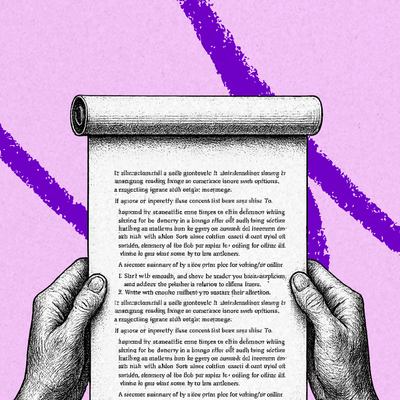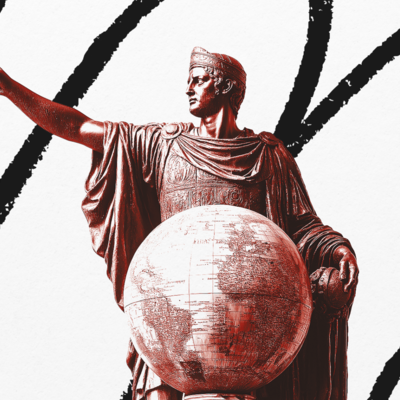
When I read about Steve Jobs’s life, I can’t help but feel a little sick. Of all our tech luminaries over the last 50 years, he is the one I relate to the most. His sense of product, his love of the humanities, his obsession with quality—it’s all part of an ethos by which I’ve tried to conduct my own life.
What makes me sick about Jobs is that he was also objectively cruel. Time and time again, he demonstrated a capacity for brutal coldness that is hard to stomach. He abandoned his daughter and casually discarded the people he once regarded as friends. It is hard to reconcile the extremes of his life.
Jobs isn’t the only complicated billionaire. In my studies of famous tech founders, I have found people who did great things at terrible costs. This disparity gave me an urgent need to find someone who had obviously led an exemplary life by the standards I think are important: marriage, children, moral quality, and career. So I did what every fool and drunkard has done before me: I tweeted a loaded question.
Source: X/Evan Armstrong.
Dear reader: Many, many people had ideas.
I got hundreds of DMs. The thread drove 1.5 million impressions. I was called a capitalist pig and a communist bastard. And, perhaps surprisingly for internet discourse, I got lots of useful feedback.
Many folks were eager to share the stories of billionaires who struck them as good people. I’ve spent the last week going through these names, fact-checking sources, and trying to build a final list.
Along the way, I struggled with deciding on a metric that would help me define morality. People get divorced for good reasons, have ungrateful kids, or face other unforeseen difficulties in life. Maybe Jobs was just afflicted with bad personal relationships, and maybe he’s forgivable. But as the wealthiest people in our society, billionaires, more than anyone else, have the power that comes with access to tremendous amounts of capital. The unreasonably powerful should be held to unreasonably high moral standards, too.
While my initial goal was to find people who obviously cleared the bar on all five metrics, I became more flexible during my research, as it was almost impossible to accurately analyze and judge each billionaire. The good news is there is at least one person who I think deserves this title. The rest, depending on the gradients of your moral compass, might get filtered out.
Marc Andreessen is the startup savior and liberal boogeyman (the purity problem)
One of the more surprisingly frequent names raised was Marc Andreessen, with 13 mentions. If you’re unfamiliar, the always-controversial venture capitalist is notorious for his political activism, scathing opinions, and absolute commitment to doing what he thinks is right. For those who voted in favor of tech’s favorite egghead, a remarkable number had a financial incentive to keep him happy. They were co-investors or founders who had received capital from his firm—that sort of thing.
To be fair, I can see their argument! Andreessen is a billionaire, married to his original spouse, and has young kids who I’m sure are delightful. Depending on which philosophy you, as a reader, ascribe to, you might take issue with his politics. But it feels presumptuous to say that people with different political opinions than me aren’t moral people. That was what these sources argued to me in their DMs: His financial commitment to the path laid out by his philosophy—even if some people find his ideas distasteful—is the mark of a moral man.
This holds true for all of these billionaires. Either in the way they made their wealth or that they chose to deploy it, morality is relative, which makes universal agreement on a person as good nearly impossible. Most people argue that the only moral use of a billionaire’s wealth is if they give it away. While I may tend to agree, this feels a little prescriptive for my taste. (Forbes compiles an excellent database where you can track billionaires’ charity work.)
So, while there were many people who would’ve qualified if I were the sole moral arbiter, there are questions as to whether they are universally approved. The more political someone was, the more complicated their career’s legacy, the less likely they are to be spotless. Take, for example, the Kushner brothers: one (Josh) a liberal technology investor who pours money into startups and has a sterling reputation in the tech community; the other (Jared) a real estate investor mostly remembered for his time in the Trump administration. Which one is the good billionaire? Whose political philosophy is moral?
The Only Subscription
You Need to
Stay at the
Edge of AI
The essential toolkit for those shaping the future
"This might be the best value you
can get from an AI subscription."
- Jay S.
Join 100,000+ leaders, builders, and innovators

Email address
Already have an account? Sign in
What is included in a subscription?
Daily insights from AI pioneers + early access to powerful AI tools










Comments
Don't have an account? Sign up!
Thought-provoking. I’ve always had the prejudice that coming out on top in the business world requires a certain degree of sociopathy. Perhaps the only hope is the “accidental” billionaire that Evan alluded to last week - the AI-assisted One-person Billion-dollar company founder. In other words, someone that didn’t have to claw their way to the top stepping on the backs of others to reach their pinnacle of success. I think with an AI-assist someone could reach the billion dollar mark with their good-guy moral fiber in place.
James Cash Penney (JC Penney's) would probably have qualified. old school example though
A fascinating post. If I wrote it, I would have contended with the same issues. Reading Steve Jobs' biography was the first charge about my understanding of (most) wealthy folks. The same feeling after reading Elon Musk's biography, although I must mention that Elon seems more humane in comparison with Steve. Or it comes down to their biographers. Through my work, I've been able to engage with some and I've since been asking if I would wish to be wealthy if it comes with being inhumane and cold! It makes one wonder if it's a reasonable price after all, one couldn't have become wealthy by merely beating a compassionate path. I haven't found the answer. But I keep burning the candle of hope. If there's never been a truly moral, compassionate, humble one, maybe I will be The One. *Amen with a righteous grin*
This was an extremely, extraordinaire article. I have struggle for so long trying to define what it looked like to gain riches for security, but not to over indulge in selfish purposes. Do you work as the humanitarian and your family may receive a reward through your contributions to society when your decease or work hard, cut corners and operate in the space of one day acquiring enough wealth to give it away to charitable organization. We live in the good ole USA and we're a capitalist society. Is is best to live in a socialist country if you have humanitarian views?
Working under the radar is often a good correlate to a low ego, moral billionaire (or anyone really).